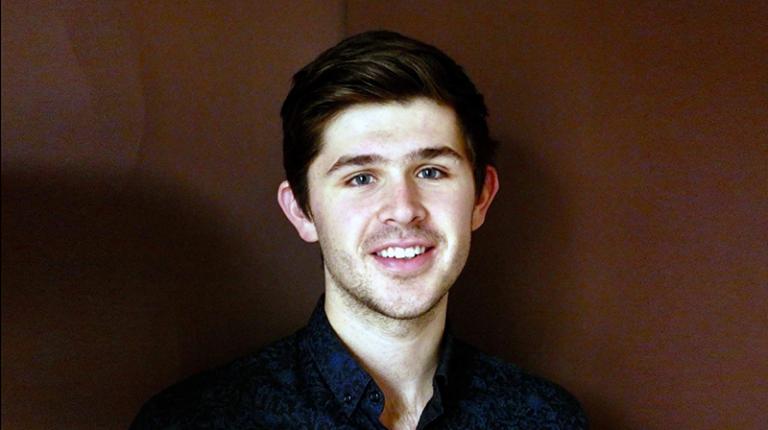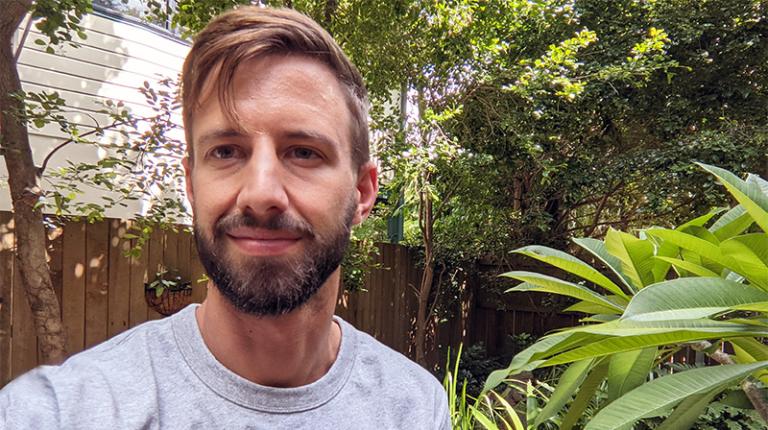Overview
Build a career with impact, with the Graduate Certificate in Planetary Health, focused on crucial global and local issues.
Planetary health addresses the relationship between the health of people, place and the planet, understanding that each profoundly impacts the other.
Drawing across a range of disciplines, this course focuses on finding local solutions while sharing knowledge with communities around the world. The course encourages you to build on your knowledge in almost any field – whether community development, health or education, across sciences, business, law and politics – to take your career in a more meaningful direction. Level up for the planet!
You'll explore pressing issues including climate change and disaster response, while foregrounding First Nations knowledges and local community needs.
Graduating with practical knowledge, you'll be ready to design and apply innovative responses to issues in your workplace and community – creating healthier, fairer, more sustainable environments.
Study in convenient four-week blocks
Following the overwhelming success of the revolutionary VU Block Model with undergraduate students, we have started rolling out the Block Model to our postgraduate courses.
This new course is designed and developed in four-week mode, which means you study one unit (subject) at a time over four weeks, rather than juggling several units at once. And with its focused timetables and smaller, collaborative classes, VU’s Block Model gives you more time to connect with your peers, lecturers and industry partners, helping you to build strong professional networks.
The VU Block Model has improved our student results and engagement, and has won multiple international awards for innovation and excellence.
What is planetary health?
The term 'planetary health' has been used in health and environmental sustainability discourse since at least the 1980s. It addresses the intersect between the health of the planet and the health of communities.
Global record temperatures and the coronavirus pandemic have recently brought planetary health onto centre stage. From bushfires and drought to floods and food shortages, pressing issues compel us to adapt and find ways that humans and the environment can survive and thrive together.
VU focuses on a place-based approach, finding socially equitable solutions for local communities while sharing knowledge with communities around the world. Strong communities can make strong choices to be committed custodians for our environment and our shared home on planet earth.
We are committed to this approach, and as an education institution have joined the growing international movement of place-based planetary health.
United Nations Sustainable Development Goals
The 2030 Agenda for Sustainable Development, adopted by all United Nations Member States in 2015, provides a shared blueprint for peace and prosperity for people and the planet, now and into the future. At its heart are the 17 Sustainable Development Goals (SDGs), which are an urgent call for action by all countries - developed and developing - in a global partnership. They recognise that ending poverty and other deprivations must go hand-in-hand with strategies that improve health and education, reduce inequality, and spur economic growth – all while tackling climate change and working to preserve our oceans and forests.
- taken from the UN's Sustainable Development Goals website.
Victoria University's focus on quality education, justice, health and sustainability has been recognised with impressive results in the Times Higher Education (THE) Impact Rankings that capture universities’ impact on society, based on the goals.
Our global position of 100–201 holds two extraordinary achievements: no. 12 for Quality Education and no. 33-equal for Peace, Justice and Strong Institutions.
We are committed to building on these achievements, by providing accessible education, improving planetary health and creating healthier, more-inclusive societies.
Progress to a masters degree
To pursue further study after successfully completing this course, we recommend applying for one of these higher qualifications:
Postgraduate learning advice
As a postgraduate student you can further develop your academic language and study skills in VU’s Learning Hubs (online).
We offer maths, writing, careers and English-language advice, and show you effective ways to study and manage your time.
Learning Hubs offer:
- online support 24/7
- postgraduate writing groups
- peer mentoring
- maths and writing resources
- resume and career guidance.
We also have accessibility support services and counselling services available for all students.
Careers
This course will help professionals across many fields to improve their knowledge and skills, including:
- health professionals
- teachers and others working in education
- business professionals
- community and council services workers
- planning, building, manufacturing and farming.
Depending on your professional and study background, you might use this certificate to begin a career as one of the following:
- environment/sustainability officer
- occupational or environmental-health manager
- policy analyst
- researcher
- educator
- planetary health advocate
- sustainability/social entrepreneur.
Course structure
To attain the Graduate Certificate in Planetary Health students will be required to complete:
- 48 credit points consisting of Core units.
Course structure and units
-
- Unit code
- VPH6001
- Credits
- 12
-
- Unit code
- VPH6002
- Credits
- 12
-
- Unit code
- VPH6003
- Credits
- 12
-
- Unit code
- VPH6004
- Credits
- 12
Learning outcomes
On successful completion of this course, students will be able to:
| 1. | Critique and evaluate theories and discourses of place-based planetary health through a transdisciplinary lens; | ||
| 2. | Propose and lead in appropriate planetary health approaches in organisational development and change; | ||
| 3. | Design and implement critical interventions in policy and programs utilising planetary health discourses and approaches; | ||
| 4. | Advocate and apply a place-based approach to planetary health framed interventions and innovations; | ||
| 5. | Distinguish and appreciate Aboriginal and Torres Strait Islander standpoints and perspectives, including contextualising global critiques and experiences of First Nations peoples and communities; | ||
| 6. | Creatively apply investigative and research skills to problems and issues through a planetary health framework. |
What's a unit?
A unit or 'subject' is the actual class you'll attend in the process of completing a course.
Most courses have a mixture of compulsory 'core' units that you need to take and optional elective units that you can choose to take based on your area of interest, expertise or experience.
Credits
Each unit is worth a set amount of study credits based on the amount of time you study. Generally, 1 credit is equal to 1 hour of study per week.
Fees & scholarships
Fee type definitions
The amount you pay for your course depends on whether you’re offered a Commonwealth supported place (CSP) or a full fee-paying place.
Students who enrol in a:
- Commonwealth supported place pay tuition fees that are partly subsidised by the Australian government
- full fee-paying place need to pay the full amount for all enrolled units before census each study period.
In addition to your tuition fees, you may also be charged a Student Services & Amenities Fee (SSAF).
Scholarships & assistance
Apply for a scholarship to help with your study costs.
We can help with fee assistance and advice.
Admission & pathways
Meeting the minimum admission requirements does not guarantee you entry into this course. Some courses receive more applications than the number of places available. In this situation we will also assess your education, work and other relevant experience.
If you do not meet the minimum requirements you may be eligible for one of our special admission programs. We also encourage you to explore our study pathways to help you reach your goal.
Find out more about how to apply for our courses, and our commitment to admissions transparency.
Entry requirements
Completion of an Australian Bachelor degree (or equivalent) in any discipline.
OR
Applicants with a minimum of five (5) years approved work experience will be considered for admission to this course.
Pathways from VU courses
There are many ways you can start your education journey at VU. Pathways offer an easy transition between courses at different levels, so that you can start with a certificate and progress right through to postgraduate study.
Find out more about pathways and credits.
Credit for skills and past study
Use our credit calculator to find out how much credit you could get towards your course, based on your previous study.
If you have completed study with another university or institution and believe you are eligible to receive credit for skills and past study, you can apply for advanced standing.
Applications for advanced standing can be made after a discussion with your course chair or academic adviser.
How to apply
Applications for this course are not being taken at this time.
Browse our other Arts & humanities courses or send us an enquiry to be notified of updates relating to this course.
Enquire now
Please fill out the form below, and we'll get back to you shortly.
Get help
- Visit a student service centre
- 1300 VIC UNI (1300 842 864)
- Visit the glossary
At Victoria University, we aim to display accurate and complete course information online. However, we are unable to guarantee that every course change is currently displayed. You may contact the University directly on +61 3 9919 6100 to confirm the most up-to-date course fees, pathways and credit transfer, recognition of prior learning, admission and enrolment procedures, examinations and services available to our students.




